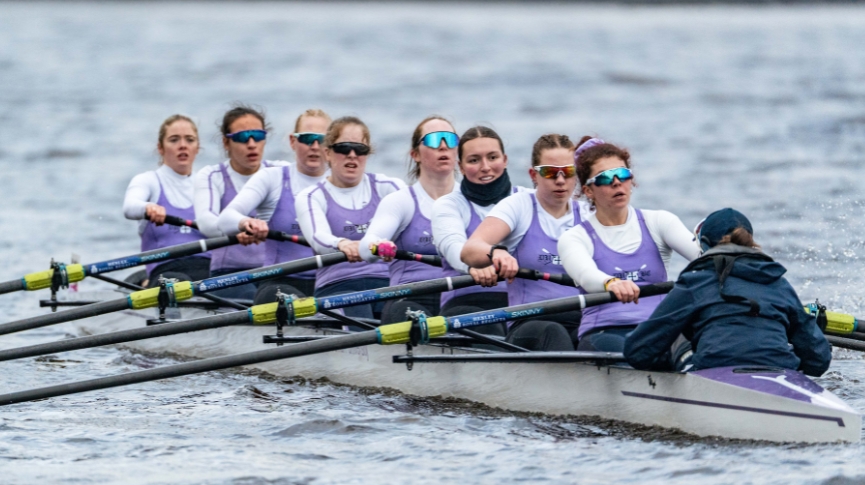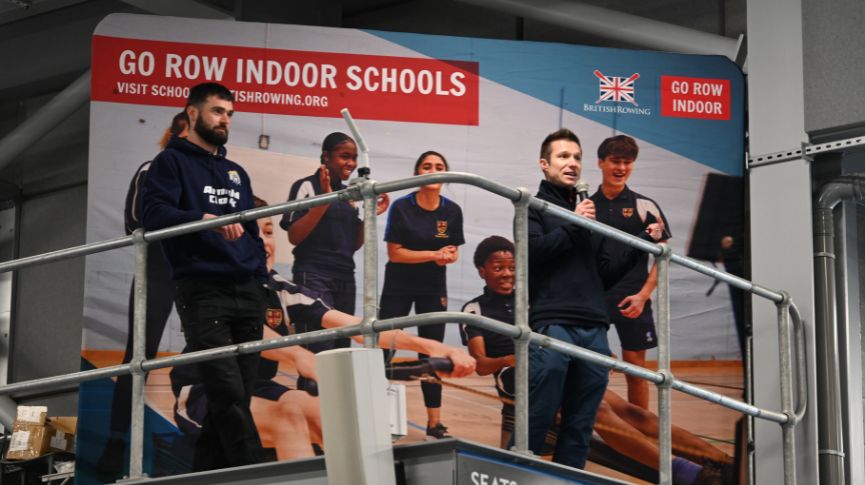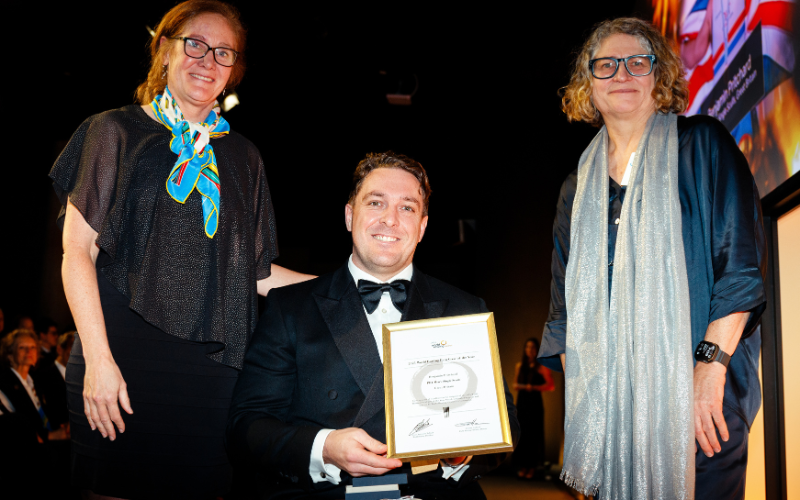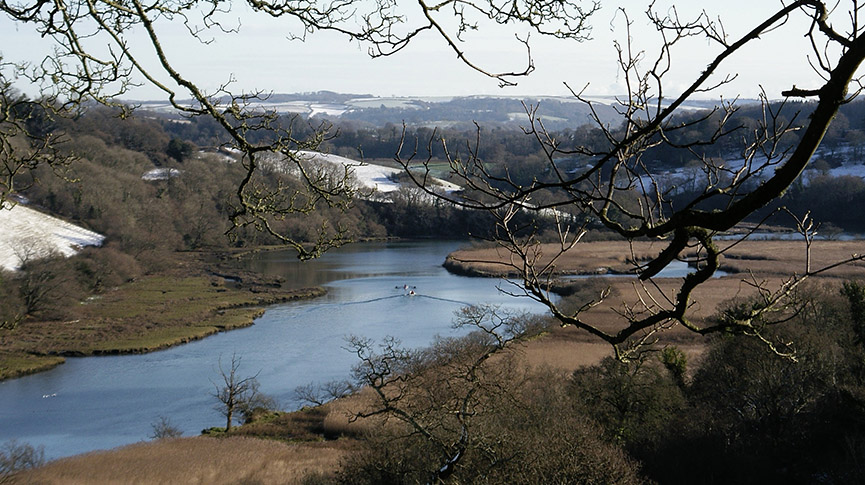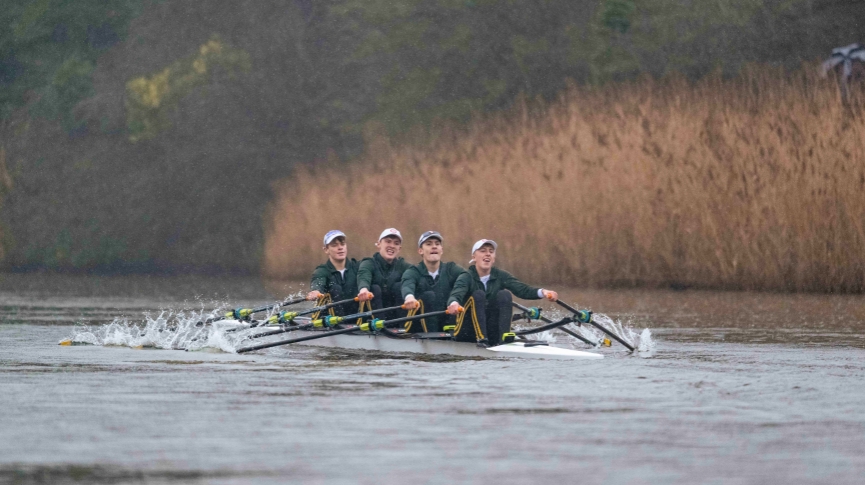Lancaster John O’Gaunt RC opens its doors and its heart to refugees
Fergus Mainland spoke with Lancaster John O’Gaunt RC about their efforts to use rowing to integrate refugees and asylum seekers in the community
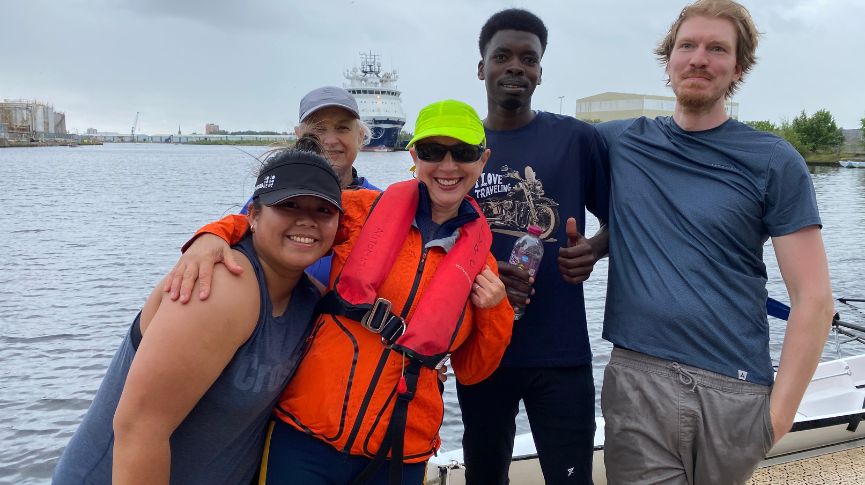
In 2017, Lancaster was named a City of Sanctuary. This announcement officially signposted the Northwest city as a place of safety, particularly for those needing support joining their local communities.
Global Link, an organisation that builds sustainable, caring, and cohesive communities in Lancashire, helped 710 asylum seekers and refugees in the region last year. This includes a wide range of nationalities, with people arriving from Sudan, Eritrea, Afghanistan, Namibia, and Iraq.
Lancaster has opened its arms to these people who have fled their homes in search of peace and safety. Opening its boat bay doors to support the new arrivals in its community is Lancaster John O’Gaunt RC.
12 months ago, Mary Fearnley was Vice Captain of the club and wanted to help assimilate the new Lancastrians into the rowing community. In her own words, “There had been immigration, and now there needed to be integration.”
What started out as a flurry of WhatsApp messages turned into a programme that offers so much more than rowing. Mary and her fellow Lancastrians were perhaps slightly naïve about the journey they would all undertake, and where it would take the club.
“Mary had the initial contact, and it’s her brainchild to think that rowing would be good for them,” explained club Chair Alex Meades.
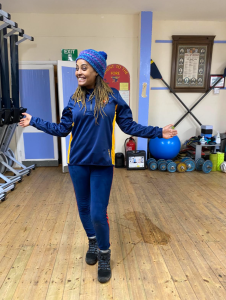
Communication between Mary and Gisela Renolds at Global Link was a catalyst to her being able to start chatting with asylum seekers and refugees, eventually taking the leap and inviting them down to the club and out into a boat.
“She’s also helped with providing bicycles and found some work too, which is brilliant. When I was captain last year, she came to me asking if it was viable. We’re all about inclusion. We have some rowers on the cusp of being high achievers, we’ve got some who are recreational rowers, and others fresh from Learn to Row – this seemed like a good thing to do,” continued Alex.
“It’s very challenging, not least because there’s a massive language barrier. It’s been a big challenge, but Mary is the big driver, and we can help facilitate getting them into boats.”
“We’ve taught them the different parts of the boat, water safety, and capsize drills. To be a member of our club, you have to know how to swim. You’re meant to swim 50m in clothes, but Liya [one of the refugees] can’t, so we’re hoping to get her some swimming lessons. From there, they’re asking about driving lessons. The string is long, it’s really long, so you absolutely need support. For one person to do it on their own is too much.”
The challenges the club faces are nothing compared to the hardships their newest members have had to endure in their lives so far. The asylum seekers have made the trip to the River Lune for a Learn to Row course; however, they’re also found companionship.
“I’ve learned people’s stories,” said Mary. “I’ve learned that not all refugees come over on small boats; some fly. Their journeys are incredible. They’ve been attacked by dogs, and they’ve been in prison. In their countries, they don’t have much wildlife because there are so many people with guns who shoot birds and other things. We get asked if there are crocodiles and if we shoot the crocodiles.
“I’ve learned a lot about Afghanistan and how the Afghans worked for the British Army. I’ve been told individual stories, and I’ve asked, ‘Who’s your next of kin?’ They don’t have anybody. Some people have absolutely nobody; they don’t know what’s happened to their parents. I’ve learned a lot about other people’s lives and how terrible some people’s lives have been.
“It’s portrayed that you come across on a small boat, and that it’s a choice. But actually, when you have nothing, you have nothing to lose. So, I’m learning about what it’s really like to walk from Afghanistan to the UK. We had a guy from Africa, and I thought, ‘Hang on a minute, he’s from a stable country,’ but because he’s gay, he can’t be gay where he’s from. All the different reasons why people are moving around the world, that’s what I’ve learned – and people’s stories are all different. To lump them together in terms of people who come across on small boats doesn’t really do them justice.”
To help support the new Lancastrians, Mary has spent the past year applying for grants and additional funding to support the work that she and the club want to undertake.
Grants from the Eric Wright Charitable Trust and local charity, 3R, have allowed John O’Gaunt RC to run Learn to Row courses for seven asylum seekers. They have also used the money to purchase clothing because asking some asylum seekers to bring a change of clothes or come in something suitable to row in simply isn’t an option. Funding has also been used for social occasions and putting on events for the asylum seekers and refugees to meet and connect with members of their new rowing community.
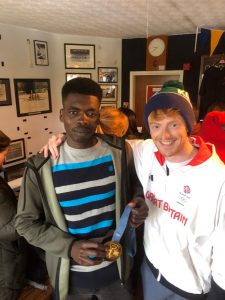
One rower who has emerged from the programme is Abdulla. Originally from Sudan, he escaped a civil war to come to the UK. He’s been a star of the programme and has already progressed to racing in the regional Explore series. Abdulla has been heavily involved with rowing, and Mary has also been helped him with writing job and housing references as well.
“Rowing taught me many things, and I thank them for helping me at the club,” said Abdulla.
Mary, Alex, Chris Chesworth, and the wider John O’Gaunt RC team know that learning to row is so much more than just stepping into a boat. With Quadruple Sculls sometimes having four different languages in a crew, coaches have to be patient and think creatively to deliver sessions.
“Funding has helped with something as basic as making sure they have the right clothes to wear so that they are safe in the boat, right through to building confidence, and some of that tends to be on a one-to-one basis.” said Chris
Mary has used things like Google Translate to convert documents into other languages to speed up any processes that require forms. This has also included Learn to Row documentation.
“It would make it so much easier to get some proper language translation. Ideally, it’s someone who likes rowing so they can sit in the boat, row, and translate at the same time,” she said with a laugh.
“It’s a different aspect of coaching. People who learn to row or come on our Learn to Row course are generally middle-aged people looking to do something new. Some of these guys are thrown in at the deep end, and you’re starting at beyond basics. It certainly brings out in coaches that you need to spend time with them one-to-one and that these people are just the same individually,” explained Alex.
Chris continued, “If we were doing a standard Learn to Row course, you would have continuity with the group. What we’ve found with the asylum seekers is that they will be there one week, gone for a couple of weeks, and then they’ll bring a friend with them or somebody just appears saying, ‘So and so told me to come along,’ which is great. However, there’s no continuity.
This is a theme that has been ongoing since the beginning of the project, but Alex stressed the importance of not jumping to conclusions.
“Don’t assume anything. It’s not a case of them not bothering to turn up, they have other things on, and one or two of them got moved to different accommodation further away, but then they came back,” he said.
“Sometimes you get a really good rower and then they get moved by Serco, who provides accommodation for asylum seekers, or they have no housing, so they go up to Glasgow for six months and then come back. Continuity is something you just have to throw out the window and welcome whoever comes. Because continuity is difficult, funding is difficult too. You can start with seven, then have six, then have none, then have seven. Everybody has to be quite patient,” explained Mary.
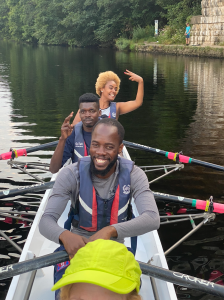
For Mary, retirement comes at the end of this month, and with it an opportunity to expand the work she is doing in Lancaster. It also allows her to learn from other groups in Lancaster who are working with refugees and asylum seekers, such as a couple of cricket clubs. One example is Silverdale Cricket Club, which has a refugee playing in every match.
“Word is spreading that this is a safe place to come to. We have people coming down just for the social rather than the rowing, and I think it’s a very welcoming place for them to come. The club has been very supportive of the initiative. I was really worried it wouldn’t be supported by the club, but I think they understand why it’s important that this is done,” said Mary.
This idea of the club being a safe, welcoming space is something that Alex is very passionate about. As someone who served in the Forces, the club Chairman has been able to listen to some of the stories, particularly one individual who has travelled from Iraq and used to work for the British forces who were deployed in the region.
“I’d love to see it grow in numbers and quality of rowers as well,” he said.
“Ones who show promise should develop just like any other person who does a Learn to Row course. We had one woman who turned up, not to row, but just to have a cup of tea and to socialise, which is great. This is a safe place, a welcoming place to come, it’s another dimension of what we offer.”
In countries and communities around the world, sport can be a means of escape and a lifeline to so many affected by war, persecution, and countless other atrocities. Sport can be a vehicle for change, and rowing is so different. It’s clear that Lancaster John O’Gaunt RC offers so much more than a Learn to Row Course. They offer a family.
As the club looks to expand the work it is doing, Mary, Alex, and Chris are looking to establish some more structure to the work they are doing. With only two stable boats and a coxed quad available for Learn to Row Courses, they are exploring their options to expand their fleet and help with delivery as well.
The club is also looking for additional donations of kit to ensure everyone has appropriate clothing to wear out on the river.
If you would like to contact John O’Gaunt RC and support their efforts, you can do so here.


